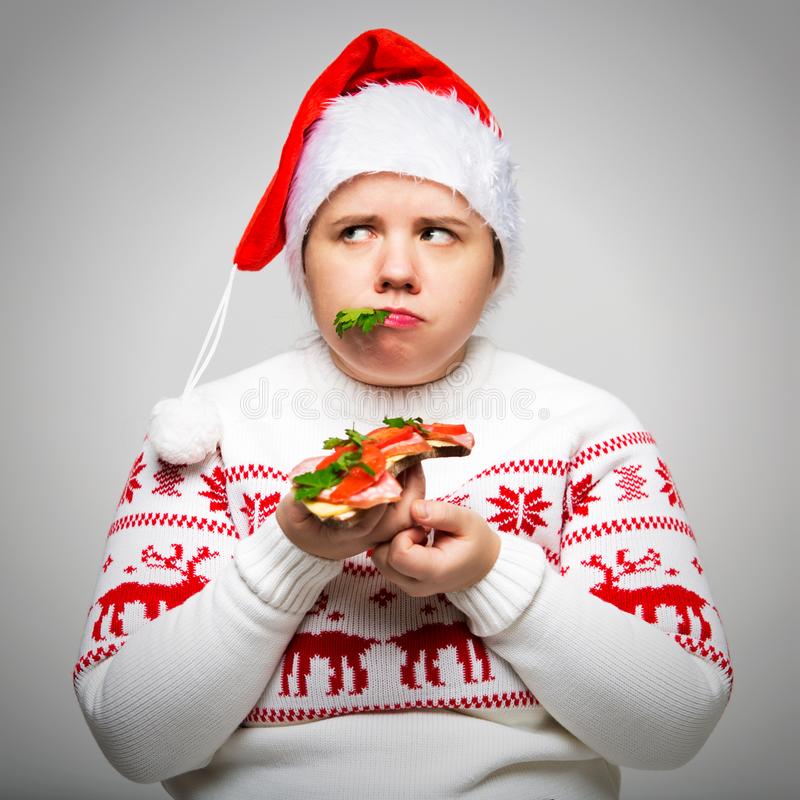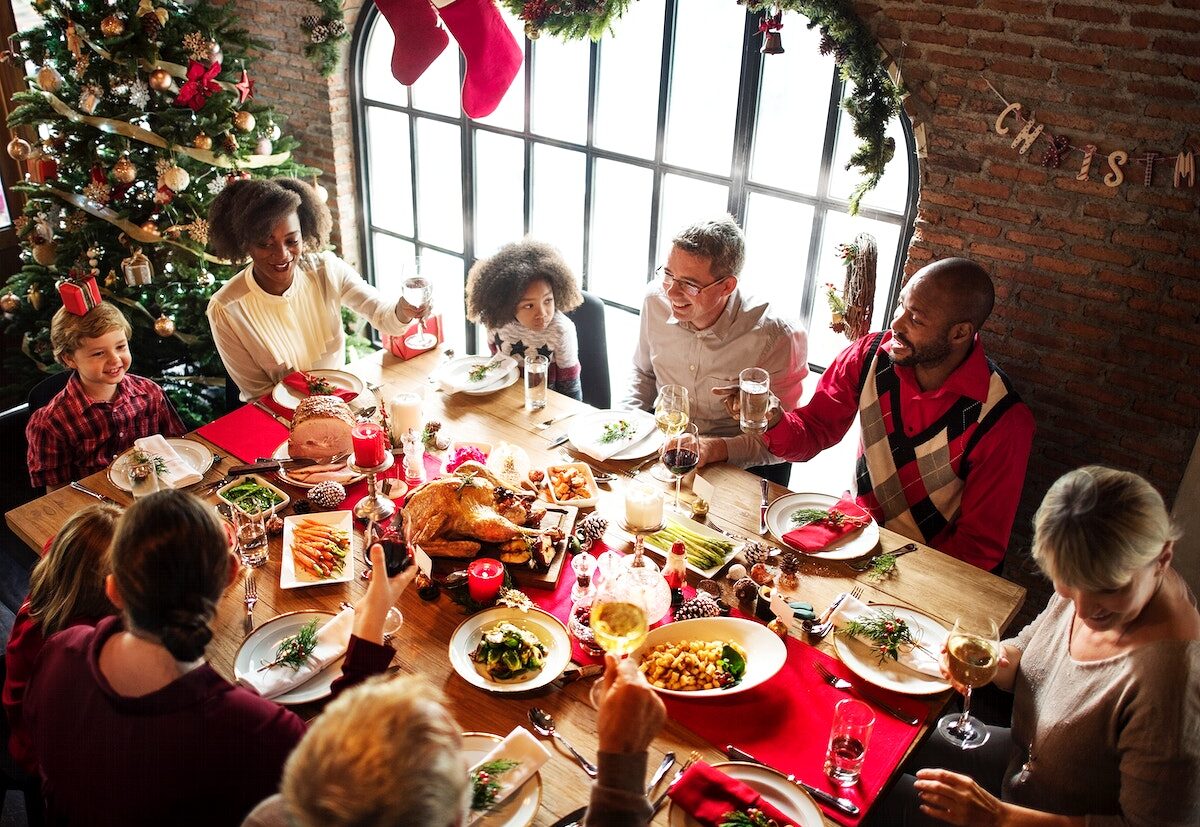Sweet potato casserole. Pumpkin pie. Hot chocolate with cinnamon. Yum. Just saying the words makes me want to have some. I can’t count everything I eat during the holiday season, and it’s better left unsaid. I hope I don’t put on 10 pounds before January 1st. It won’t be funny.
From festive Starbucks drinks and endless Christmas cookies, I consume at least double the sugar I’m used to during the holiday season. Holidays are a special time. Sometimes, it’s the only time of the year we get to eat certain foods, and I want to enjoy them all.
The holidays are a time to be around friends, family, and of course, food. But overeating stems from emotional distress, not a time of the year or food availability. What is it about the season that makes resisting the urge to overeat especially difficult for us, emotional eaters? How to not get weak in the knee and give in this year, and still enjoy ourselves?
Holiday Season Is A Challenging Time
While the holiday season is a joyful time for many people, it also is a time that can bring an enormous amount of stress. Some of us feel overwhelmed with social obligations, costly gift-giving, and complicated family relationships. For others, the holidays bring feelings of loneliness and isolation. The temptation to soothe these feelings with food can be especially strong.
On the one hand, holidays are a highly emotional season that emphasizes food. Most of the holiday events include food, which is off diet, and delicious. The social pressure to try it all is real, even though I don’t need to be pushed too hard. For us, emotional eaters, any kind of celebration usually involves food.
On the other hand, sadness, anger, frustration, disappointment, hurt, loneliness, tension, and anxiety are the most common triggers in emotional eating. And family celebrations during the holidays sure can create significant emotional discomfort, while also providing our favorite coping tool to manage it: comfort food.

How To Survive The Season Without Binging On Food
If, like me, you are concerned about gaining weight during the holiday season, here are four tips that can help you manage your emotional eating in the coming weeks.
Check In With Your Feelings
If you’re worried about relying on emotional eating during the holidays, try to understand why you would need to. Getting to the root issue will help you identify productive actions you can take, instead of compensating for your discomfort with food.
Try to identify which aspects of the season are the most challenging for you. For example, if loneliness is an issue, you may try to fill your holidays with plans. Accept that friend’s invitation to join them for dinner on Thanksgiving or sign up to help serve Christmas dinner at a local soup kitchen.
If on the opposite, parties trigger food cravings for you, you can try to be more mindful about which invitations you accept this year. There is no upside to jeopardizing your weight loss or weight management efforts by putting yourself in high-risk situations.
Apply the “Not Your Plate, Not Your Place” Policy
If you cannot avoid toxic situations with people who make you stressed or anxious during the holidays, you can always set boundaries and let them know what you will tolerate from them or not. Do not let anyone shame you about your food choices or pull you into conversations you refuse to engage in.
You can set boundaries by saying something like: “I don’t want to discuss [topic of your choice] at Thanksgiving dinner.” You can also set boundaries by walking away from or not participating in any conversation that makes you uncomfortable.
Apply the “No Should” Policy
Holiday emotional eating begins with a “should” list that is bound to get anyone in trouble. I “should” do this or go to that function or get that gift. I “should” prepare a holiday feast for my family or make an expensive gift.
We all have the desire to please others by making the holiday picture card perfect, but you may tend to take on an overload of responsibilities and then feel guilty if you cannot live up to that self-imposed standard. Do what you can realistically do this year. Take a step back. Learn to say “no” if necessary and try not to overcommit yourself.
Trying to reach unrealistic expectations will only bring you disappointment, therefore more emotional eating. Set out small goals for your holiday season. Ones that are attainable. Break each one down into small steps. Keep it all simple and you will enjoy it more.
Apply the “No Guilt” Policy
It’s not just you. The holiday season triggers all of us. Remind yourself that you are allowed to have celebrations surrounding food, just like anyone else. If you overeat, acknowledge it, learn from it, then move on and try to do better the next day. Guilt is a set-up for restricting and then subsequent overeating.
Even though you are watching your weight, you don’t need to deprive yourself of your favorite foods. You don’t have to eat only leafy greens and lean meat or feel guilty about giving yourself sweet treats at this time of the year.
This holiday season, you no longer have to feel powerless in the face of difficult emotions or obsessive food thoughts. Being aware of your personal eating triggers and developing effective responses can help the season go smoothly. You can enjoy a memorable holiday with family and friends while keeping Santa’s pants in the closet.
What are your favorite strategies to not overeat during the holiday season? Let us know in the comments!





